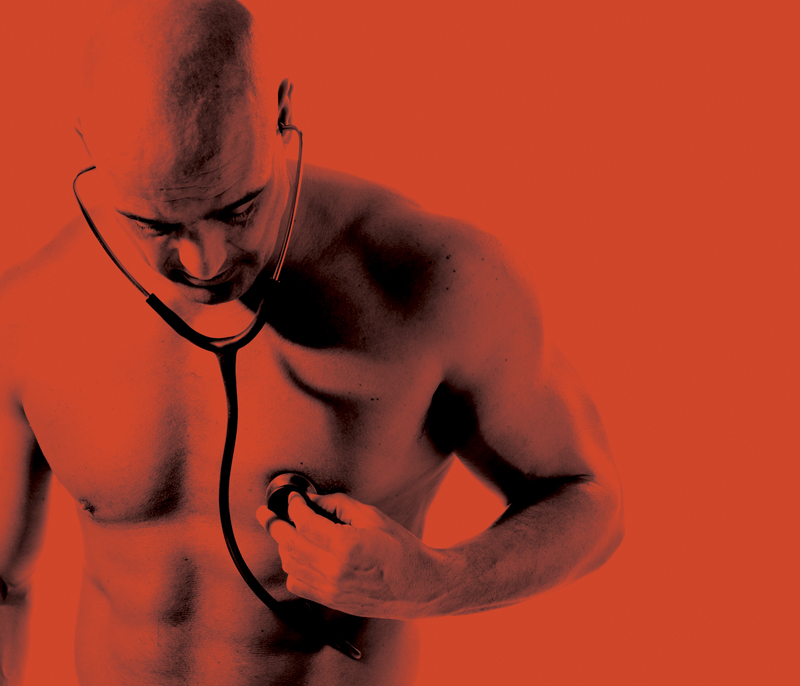Written by Daniel Shaye, D.C.
Whether in the role of doctor or athlete, I’ve learned that the body gives out many different messages. Some of these messages are important, some urgent, and some are both.
The intense discomfort that’s a part of running long distances at relatively high speeds is very different from that sharp pain in the hip or knee that leaves us limping. On the more serious side, I’ve seen patients who claimed “indigestion” who were having heart attacks, and patients who insisted they were “fine” who had fractures or cancer. What’s your body telling you … and what does it mean?
Following is a brief list of “dos” and “don’ts” for listening to, and interpreting, your body’s pain signals.
DON’T ignore aches and pains, especially if it gets worse while at rest. I know an oncologist (cancer specialist) who ignored her back pain for a while. Turned out, she had kidney cancer. Fortunately, she acted in time and got a proper diagnosis and treatment. On the other hand, I treat many athletes—and not a one of them goes without aches and pains. An athlete must overcome or even block out certain types of discomfort. The trick is knowing when to seek help, or when to make a change. Always wake up stiff? Maybe it’s your bed, or your sleeping posture. Knees hurt after a run? Maybe it’s time to replace your shoes. Headaches at the end of the day? Check your hydration status (urine color is an easy test), your eating/drinking patterns, even the position of your monitor and your visual acuity (when’s the last time you saw the eye doctor?). Even if that low back pain isn’t prostate or other cancer, why suffer if a health care professional—or some simple self-care measures—can help?
DON’T cover up your symptoms with drugs. This will only delay the inevitable—and then what could have been a small problem becomes a major one. My auto mechanic advises me to “drive with the radio off” now and again. That’s good advice for you, too. Listen to your body, and it will give you signals that something’s wrong. Don’t be afraid to ask a doctor for advice or diagnostic help. A good one will listen to you and guide you in the most conservative, reasonable direction. If you don’t trust your doctor to do this, then you either need to adjust your attitude, or find a new doctor.
DON’T ignore back pain. Old research said back pain is self-limiting and goes away in 30 days; newer literature suggests it may be chronic, recurrent and episodic over many years. See a professional. Better yet, head the problem off: Stop smoking, hydrate properly, and exercise both regularly and safely. All of these approaches decrease incidence of back pain, which is one of the top ailments amongst Americans.
DON’T ignore depression and other types of emotional pain. Did you know that in America suicide is more prevalent than homicide? Our “enemy” is in the mirror, statistically speaking. If you feel overwhelmed, out of control, or depressed, and you’re unable to cope, mention the issue to your doctor or see a mental health professional. Life’s meant to be enjoyed.
DO listen to your body’s fatigue. Are you yawning all the time? Reliant on the latest “energy” substance to get you through the day? Can’t function without coffee? Sleep deprivation is a common problem. Though there are medical causes, failure to regularly and sufficiently “hit the hay” is an excellent path to a host of long-term diseases, automobile and industrial accidents, and even the common cold. Plus, sleep is free—and it improves your productivity. Think of it as the one free thing in life that pays dividends!
DO update your sleeping surface periodically. If you’re not refreshed after a night’s sleep, or achy in the mornings, it may be your arthritis—but it might also be your bed, pillow, or both. Get an updated, ergonomic pillow. Rotate and flip mattresses that require it. And consider getting a new bed every five to seven years.
DO watch your pain patterns. Knees always hurt after standing for long periods of time? Try different shoes, or consider getting evaluated for custom orthotics (off-the-shelf ones are less appropriate to your specific needs). Neck hurts after long hours at the computer, or in front of your e-reader? Take frequent breaks, and find an ideal viewing posture. Elbow hurts from racket sports or golf? Adjust your string tension, or get a golf pro to analyze your form. And if the simple fixes don’t work, see a professional skilled in caring for the human frame. Even if you end up with the dreaded “arthritis” diagnosis, there are conservative ways to care for your body—before your only option is joint replacement.
Over my 15-year career in health care, I’ve had patients describe their pain as everything from, “A gremlin with a lighter” to “like a warm frozen-ness.” Those descriptions are a far cry from the final diagnoses.
You don’t need a medical degree to manage your body—but knowing how to care for yourself, and when to ask for some professional advice, is very important.
If I spot a lesion on a patient’s skin, I may suggest that he or she see a dermatologist. If the worst a dermatologist ever tells me is, “Why are you wasting my time with benign lesions?” then I’ll be happy. If I’m comfortable with the potential for such embarrassment—balanced by the likelihood of helping save lives and improving quality of life—you should consider doing the same for the only body you’ll ever own.


